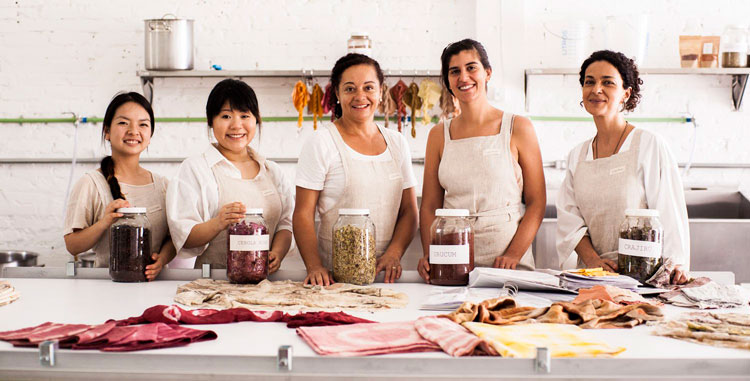The fashion industry does not have a very favorable reputation when it comes to sustainability, as it is on the list of the most polluting activities in the world. Furthermore, the media has reported events that have become known as “the dirty secret”.
The complaints are about the obscure custom of incinerating and destroying products with minor defects or that exceed market demand. To adapt to the new market reality, industry 4.0 and consumer demands, companies need to change the way they produce, think and sell.
In this sense, we will cover a brief history of the textile industry and examples of brands that have set a good sustainable example through new processes and technologies. Get to know.
Fashion industry and the environment: an unsustainable history
The fashion industry is responsible, on average, between 8% and 10% of all global greenhouse gas emissions, mainly carbon. To give you an idea, these percentages are higher than pollution from the aviation and maritime transport sector.
In addition to greenhouse gases, textile production generates tons of clothing that is useless to the industry (stained, with small holes or minimal damage) and to the population. Dispose of what is done in landfills, without reuse, recycling, separation or reinvention and which represents a loss of US$500 billion/year.
With the beginning of the use of electricity in the fashion industry, productivity began to increase at astonishingly increasing levels, mainly due to the production models of Toyotism and Fordism.
Industry 4.0 in the textile sector
Industry 4.0, or Fourth Industrial Revolution, foresees the conscious use of available resources and technologies for the production of the most varied segments. The impacts of this concept are mainly perceived in terms of reducing costs, inventory and time spent and increasing productivity.
The idea is not only about the fashion industry adapting human tasks through automation, but about reinforcing and practicing the idea of sustainability and reuse of inputs through modern, efficient machinery and technologies.
These aspects are necessary for the continuous development of the sector and adaptation to the new reality of the market and the environment.
Brazil still faces challenges and obstacles when integrating into industry 4.0, and this is perceived by the fact that few large companies completely fit this concept.
One of the main reasons for this is the economic crisis that broke out in 2017 and made many investments in more efficient systems and processes that aimed to have the lowest possible impact on the environment unfeasible.
The new consumer in the fashion industry (who thinks about the environment)
The change in thinking among consumers is a noticeable fact, as they are adopting more conscious and sustainable habits in the clothes and accessories they buy, use and dispose of appropriately.
Unlike past decades, consumers want to know the origin of raw materials and whether there is respect for the environment, workers and animals. In this sense, the search is for products with more basic colors, recycled, reforested, that have been upcycled and that are vegan and ecofriendly, for example.
Therefore, it is extremely important to highlight that having a more sustainable and efficient production is a matter of survival and minimum requirements to remain in the market, and these aspects sought by new customer concepts must be the starting point for companies’ adjustments. .
+Have you read these?
- Upcycling: what it is and its impact on the future of production
- Circular Economy: How Does It Apply to the Textile Sector?
- Fast Fashion: what it is and its impacts on textile production
Companies in the fashion industry that are setting a good example
In a reality of degradation, some national brands are being well evaluated by consumers, as they are setting a good example of sustainability and conscious production.
Panty
This is a national brand that, in addition to working to strengthen women, does not follow standards. The company’s standout line is reusable panties that replace disposable pads.
Reservation/ Eva
Winner of the Ecoera award in 2015, the Reserva/Eva brand developed a fabric that decomposes in just three years. The company also offers free modeling and sewing classes to the community of Morro da Mangueira, in Rio de Janeiro, using clothes that would otherwise be incinerated.
Flavia Aranha
Brand from São Paulo that only uses sustainable techniques to dye fabrics. The company uses natural dyes from renewable sources (leaves, roots, trees, fruits and bark). Furthermore, most of the materials used in production are of organic origin.

The fashion industry needs to keep in mind that it is possible to be sustainable and, at the same time, more productive and profitable. A very common mistake is for large companies to follow the archaic thinking that only production volume matters. Consumers want and seek more, especially value and respect for the environment.
Speaking of the textile industry and productivity, check out our post with tips on how to optimize the preparation of wrapping in fashion.


![E-book]How to ensure quality control in the textile industry?](https://deltamaquinastexteis.com.br/wp-content/uploads/2019/04/ebook-como-garantir-o-controle-de-qualidade-na-industria-textil-1.jpg)

